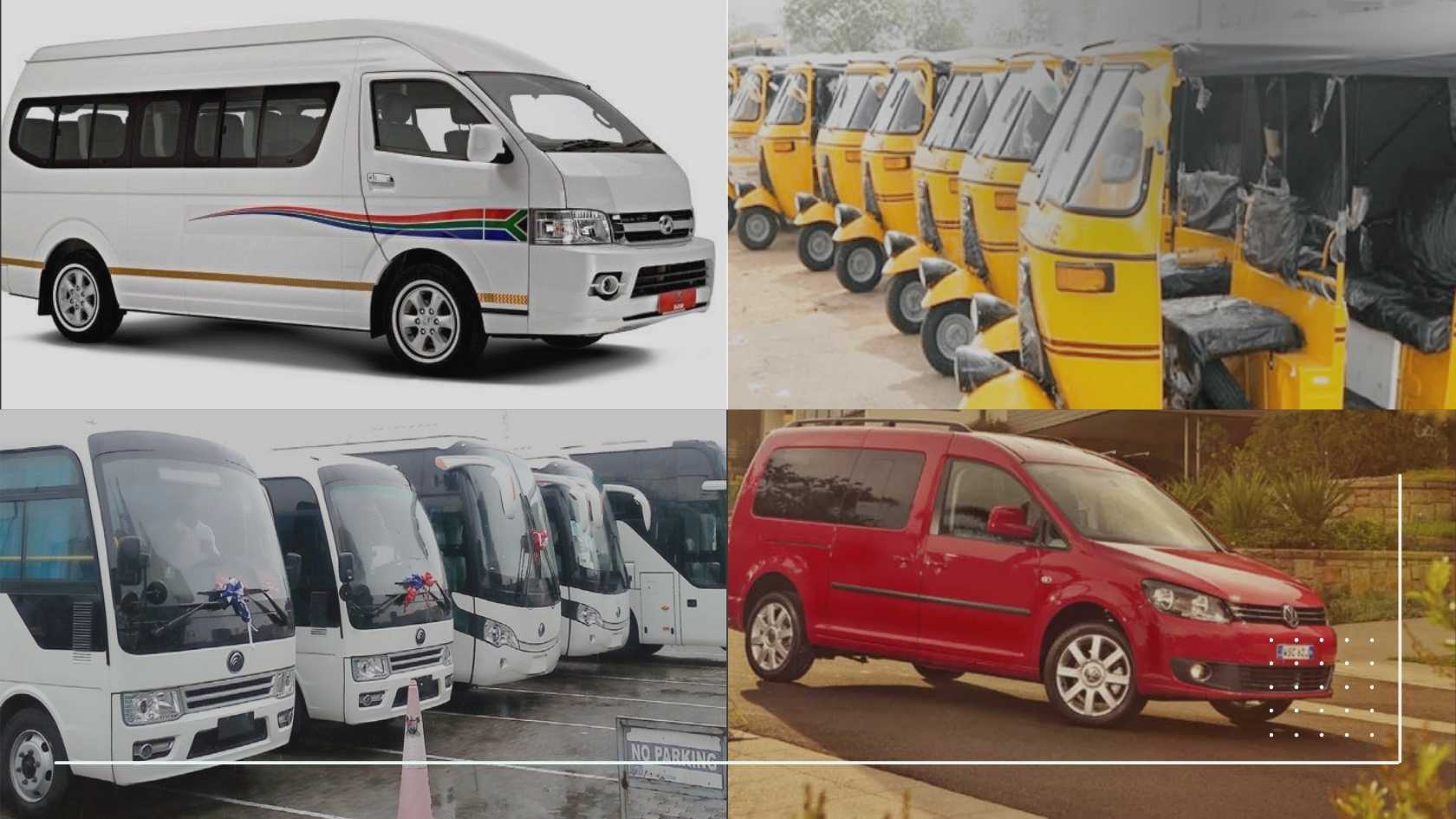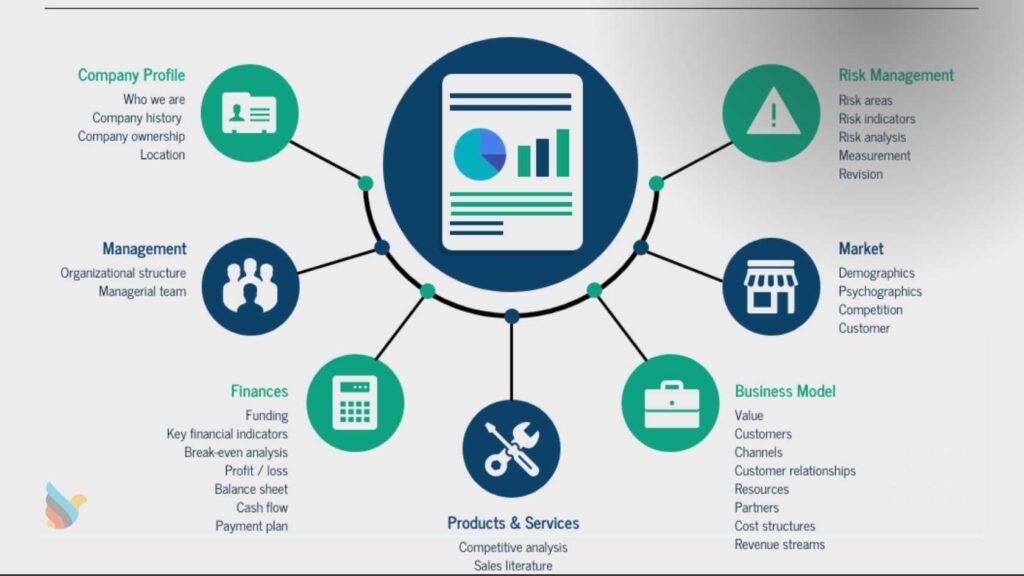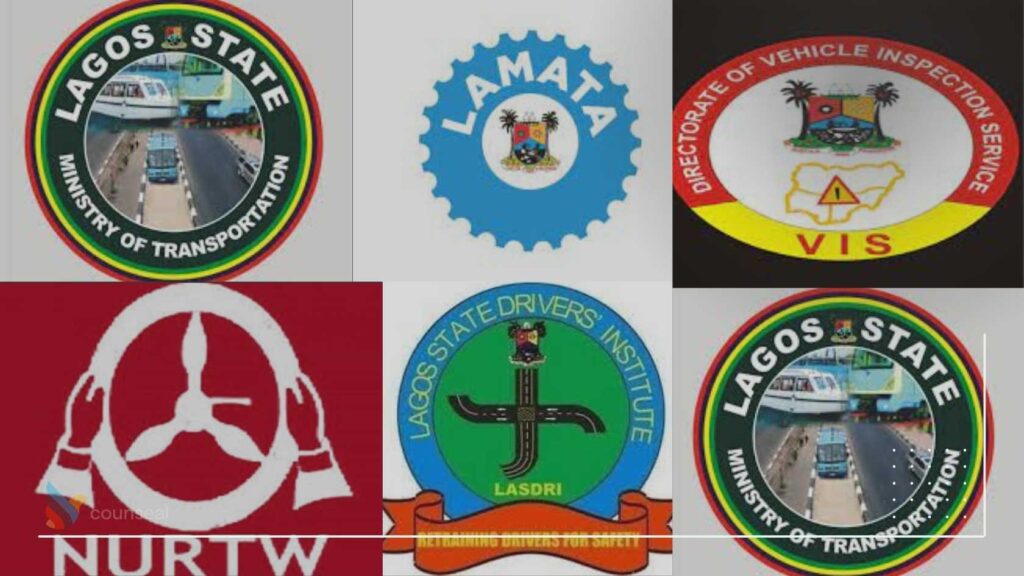How to Start a Transport Business in Nigeria: A Step-by-Step Guide

by Counseal Team
Updated May 24, 2024

Considering a venture into the Nigerian transport sector? Good call!
With a burgeoning population, rapid urbanisation, and an ever-growing economy, there’s never been a more opportune time to enter this industry. Despite the demand, the entry barriers remain relatively low, and the capital requirements are quite modest compared to other businesses. Now the question is, where to begin? Let’s embark on this journey together with this comprehensive guide.
Starting a transport business in Nigeria is a promising opportunity. With careful planning, research, and strategic decisions, you can navigate your way towards a successful business in this thriving industry.
Let’s get moving!
- Step 1: Grasping Your Market: The Foundation of Your Transport Business
- Step 2: Craft a Business Plan and Secure Your Finances
- Step 3: Business Registration: The Vitality of Legalising Your Transport Business
- Step 4: Vehicle and Equipment Essentials: Your Transport Business Lifeline
- Step 5: The Strategic Advantage of Hiring and Training
- Step 6: The Power of Marketing and Promotion
- Frequently Asked Questions
Quick Takes
The Costs Involved
The start-up costs of a transport business in Nigeria will hinge on several factors, such as the transport service, the mode of transportation, and the quality of the vehicles. We estimate that the initial investment can range from ₦1.5 million to ₦11.5 million or more. Before plunging into this venture, it’s advisable to conduct thorough market research, prepare a detailed business plan, and get your business registered. These steps can give you a clearer perspective on the best type of transport service suitable for your target market, locality, and budget.
Potential Monthly Earnings
The monthly income from a transport business can vary considerably, influenced by factors such as the type of transport service, mode of transportation, number of vehicles in operation, number of customers served, pricing, operational costs, and market competition. Hence, it’s challenging to provide a definitive answer as profit margins and revenue streams can differ.
However, for a rough estimate, use the following formula to calculate the potential monthly income:
Monthly income = (Number of vehicles x Average daily trips x Average fare x 30) – (Operational costs x 30)
For instance, suppose you operate a taxi service with a fleet of 10 cars, each making 20 trips per day at an average fare of ₦500. If your average daily costs (fuel, maintenance, driver’s salary, etc.) amount to ₦2000, your monthly income calculation would be:
Monthly income = (10 x 20 x 500 x 30) – (10 x 2000 x 30) = ₦3,000,000 – ₦600,000 = ₦2,400,000
Hence, before taxes and other deductions, your monthly earnings could be around ₦2.4 million.
Minimum Investment Required
Depending on the scale and nature of the business, the minimum capital required to kick-start a transport venture in Nigeria can range from ₦100,000 to ₦10,000,000 or higher.
Ideal Locations
The best states to establish a transport business in Nigeria are:
- Kaduna: According to a 2018 World Bank analysis, Kaduna tops the list for business-friendly states in Nigeria. With a diverse economy and well-developed transport infrastructure, it’s an ideal location for launching your transport venture.
- Lagos: As Nigeria’s most populous city, Lagos presents immense potential for transport businesses because of its extensive road network, seaport, international airport, and railway system.
- Anambra: Anambra’s robust manufacturing, trade, and commerce sectors create a high demand for transportation services. Its good road network and transport connectivity make it an attractive location for your business.
- Kano: As the most populous state in Northern Nigeria, Kano’s vibrant and diverse economy offers a large market for transportation services.
Prominent Transport Businesses in Nigeria
Some successful transport businesses in Nigeria include:
- God is Good Motors (GIGM.com): Known for its technologically advanced services, GIGM.com is fast becoming Nigeria’s leading road transportation company.
- Cross Country Transport Ltd: Providing passenger and goods transportation across Nigeria and West Africa. Cross Country Transport Ltd is one of the most reliable transport companies in Nigeria.
- ABC Transport Plc: As the first transport company to be listed on the Nigerian Stock Exchange, ABC Transport Plc has won awards for its service excellence.
- GIG Logistics: A subsidiary of God is Good Motors. GIG Logistics is one of the leading logistics companies in Nigeria.
- GATATransport: Aiming to provide safe, efficient, and affordable transport solutions, GATATransport is a rapidly growing company in the transport sector.
Step 1: Grasping Your Market: The Foundation of Your Transport Business

Let’s start with a pearl of wisdom: embarking on a transport venture in Nigeria without conducting thorough market research is akin to navigating through Lagos during rush hour without a GPS. It’s doable, but it’s likely you’ll lose your way, squander precious time, and burn more fuel than necessary. Market research acts as the GPS for your business, offering essential data on present and future trends, competition, and customer preferences. In the logistics industry, companies like world express shipping heavily rely on market intelligence to optimize their operations, identify growth opportunities, and tailor their services to meet evolving customer needs, ensuring efficient and cost-effective transportation solutions.
So, how do you carry out effective market research?
You should utilise both online and offline sources. Websites, blogs, social media platforms, newspapers, and magazines can offer a treasure trove of industry information. Consider conducting surveys to glean insights directly from potential customers.
Visit your proposed business locations and routes, observe traffic patterns, and note supply and demand dynamics. Engage with drivers, stakeholders, and potential customers for firsthand insights.
Last, perform a SWOT analysis to understand the strengths, weaknesses, opportunities, and threats of your proposed transport business. This will identify areas for leveraging, areas for improvement, and potential risks to mitigate.
Finding Your Niche: The Key to Differentiation
In the corporate world, a niche refers to a specific market segment with unique needs. It’s akin to a small pond where you can emerge as the big fish. Choosing a niche allows you to differentiate from competitors.
So, what transport business niches exist in Nigeria?
You have passenger transport, including buses, taxis, tricycles, and motorcycles. There’s also freight transport with trucks and vans. Specialised transport services such as ambulance services, school buses, and airport shuttles form another profitable niche. Then there are online transport services like ride-hailing, delivery, and carpooling.
But how do you select your niche?
Consider factors like market size and growth potential, competition, customer demand, operational costs, and risks. Also, factor in your personal interests and passions.
Learning from the Best: Successful Niche Transport Businesses in Nigeria
Consider GATATransport, which has established a niche by offering luxury bus and car rental services for corporate and individual clients. Or Max.ng, an online transport company that has capitalised on the motorcycle taxi and delivery services trend in major Nigerian cities. ABC Transport is another success story, operating intercity and interstate bus services across Nigeria and West Africa.
These examples should inspire and provide direction as you navigate your way into the Nigerian transport business. Remember, every great journey begins with a single step. And that step, my friend, is robust market research and selecting the right niche.
Step 2: Craft a Business Plan and Secure Your Finances

Embarking on a transportation venture in Nigeria, as with any other enterprise, requires meticulous planning and groundwork. A key step in this process is constructing a thorough business plan.
Your business plan is the blueprint of your business. It captures your vision, mission, objectives, strategies, operational and financial plans, and marketing tactics. This document also gives an estimate of your prospective earnings, costs and profits, and pinpoints possible hurdles and risks and how to counter them. A well-crafted business plan can draw and persuade potential investors, partners, and lenders to back your venture.
So, how do you create an interesting business plan for your transportation business? Here’s a roadmap to guide you:
- Use a standard business plan template or format. Reputable free templates are readily available online, or you can construct a comprehensive business plan in a matter of minutes on counseal.com.
- Establish SMART objectives. This acronym stands for Specific, Measurable, Achievable, Realistic, and Timely.
- Carry out market research and competitive analysis. This can assist you in validating your niche and value proposition, as well as grasping market dynamics and trends.
- Develop a unique selling proposition (USP) and a brand identity. This can differentiate your transport business from the competition.
- Formulate a realistic and detailed budget and cash flow statement. This can assist you in efficiently managing your funds and expecting potential financial challenges.
- Seek expert advice. If you’re uncertain or require expert insights, consult with business mentors, specialists, or advisors.
Besides creating a business plan, securing funding for your transport business is vital. Funding refers to the capital or money required to launch and operate your business. It’s crucial to secure funding to cover your initial and ongoing costs, such as vehicle purchase or lease, fuel, maintenance, insurance, registration, licences, permits, wages, and marketing. It also enhances your business’s credibility and provides a competitive edge in the market.
Here are some potential funding sources:
- Personal savings or assets. This includes cash, property, or equipment that you can invest in your business.
- Family and friends. Occasionally, your relatives, colleagues, or acquaintances may lend or invest money in your business.
- Bank loans or overdrafts. Many commercial banks and microfinance banks offer loans or credit facilities to small and medium-sized enterprises.
- Grants or subsidies: Certain government agencies or non-governmental organisations provide financial help or incentives to transport businesses.
- Angel investors or venture capitalists: These are affluent individuals or firms that invest in promising and innovative businesses for equity or ownership.
- Crowdfunding. Several online platforms allow businesses to raise funds from a large group of people.
When choosing a funding source, consider the amount and duration of funding you need, the interest rate and repayment terms, the eligibility and application requirements, the risks and benefits, and the availability and accessibility of the funding option.
Launching a transport business in Nigeria may be challenging, but with a well-crafted business plan and secure funding, you can steer your business towards success. Remember, the journey of a thousand miles starts from mile number one. So, take that step today and start planning for your transport business.
Step 3: Business Registration: The Vitality of Legalising Your Transport Business

Setting up a transport business in Nigeria is far from simply buying vehicles and hitting the tarmac. It involves navigating legal procedures, including registering your business and getting the licences and permits. While it may appear to be a daunting bureaucratic labyrinth, there are interesting reasons these steps are indispensable.
Foremost, it ensures you meet the legal and regulatory requirements of the transport industry and government. Not only is it the law but breaching it could cause penalties or even cause the closure of your business. Second, it protects your business from legal liabilities. In the event of disputes or lawsuits, your business registration can act as a legal safeguard.
It also gives your business with legitimacy and credibility. Customers are more inclined to use a registered transport service than an unregistered one. Last, being a registered business opens the door to benefits and incentives, such as tax exemptions, grants, and loans.
The Roadmap to Registering Your Business
Here’s a step-by-step guide to registering your transport business and getting the required licences and permits in Nigeria:
- Start by choosing an appropriate business name and structure. Whether you’re opting for a sole proprietorship, partnership, or limited liability company, this decision will have legal implications for your business.
- Next, register your business name and structure with the Corporate Affairs Commission (CAC), which will provide you with a certificate of incorporation.
- Don’t overlook taxes. Register your business with the Federal Inland Revenue Service (FIRS) to secure a tax identification number (TIN).
- State and local authorities also require registration for business permits or licences. Ensure you’re fully compliant.
- The Federal Road Safety Corps (FRSC) and the Vehicle Inspection Office (VIO) are other vital entities to register your vehicles and drivers with. They’ll provide a vehicle licence, driver’s licence, and roadworthiness certificate.
- Finally, consider registering with pertinent transport associations and unions for a membership card or sticker.
Whilst these steps may appear intimidating, remember that seeking professional advice from lawyers, accountants, or consultants is always an option.
Types of Licenses and Permits
The licenses and permits required for a transport business in Nigeria vary, but here are some key ones:
- State Transport Authorities (STA) License: This regulatory licence is for intra-state transport operators. An example is the Lagos Metropolitan Area Transport Authority (LAMATA).
- National Union of Road Transport Workers (NURTW) Permit: A union permit for road transport operators.
- Lagos State Drivers’ Institute (LASDRI) Card: A training and certification card for drivers in Lagos State.
- Hackney Permit: This permit is for commercial vehicles operating within a local government area.
Success Stories
Several transport businesses in Nigeria have successfully registered and got the licenses and permits. Peace Mass Transit, a nationwide passenger transport company, has registered with the CAC, FIRS, NURTW, and FRSC. Jumia Food, an online food delivery company operating in major cities in Nigeria, has registered and got the licences and permits with the CAC, FIRS, STA, and LASDRI. The CAC, FIRS, NTC, and FRSC have registered GIG Logistics, a goods transport company operating across Nigeria and West Africa.
In conclusion, registering your transport business and getting the licences and permits isn’t merely a legal requirement. It also confers many benefits. Though the process may appear complex, with the right guidance and resources, you can traverse it successfully. Remember, every great journey begins with a single step.
Step 4: Vehicle and Equipment Essentials: Your Transport Business Lifeline

Every entrepreneur knows it: each business has its essentials. In the transport sector, vehicles and equipment are not just essentials; they are the lifeline that pumps vitality into your operation.
Still wondering why? Let’s break it down:
- Delivering Value: Your core service is moving people or goods from one location to another. Without vehicles and equipment, there’s no transport business. It’s as clear-cut as that.
- Meeting Quality and Safety Standards: Your customers and regulators demand more than just transportation. They want reliable and comfortable transport. Your vehicles and equipment must meet and preferably exceed these expectations.
- Creating a Competitive Edge: The vehicles and equipment you choose can set you apart from your competitors. The right choices can sculpt a robust brand image and give you an advantage in your market.
- Optimising Operational Efficiency and Profitability: High-quality vehicles and equipment can boost your operational efficiency, trim maintenance costs, and ultimately increase your profitability.
Navigating Vehicle and Equipment Acquisition
Knowing you need vehicles and equipment is the first step; acquiring them is another ball game. Here are some tips to help you ace this crucial phase:
- Know What You Need: Identify the type and number of vehicles and equipment based on your niche and market demand. Your needs will vary whether you’re in passenger transport, goods transport, specialised transport, or online transport.
- To Buy or Lease?: Weigh the costs and benefits of purchasing versus leasing. There’s no one-size-fits-all answer here; it all hinges on your business needs and financial situation.
- Choose Your Dealers Wisely: Purchase or lease from reputable and reliable dealers or suppliers. Do your homework, read reviews, and seek opinions.
- Negotiate Terms: Don’t shy away from negotiating the price and terms for your purchase or lease. Remember, everything is negotiable in business!
- Test Before You Invest: Always inspect and test the vehicles and equipment before sealing the deal. You wouldn’t buy a house without inspecting it, right? The same rule applies here.
- Stay on Top of Maintenance: Regular maintenance and servicing will ensure peak performance and longevity of your vehicles and equipment.
The Winning Ways of Successful Transport Businesses
There’s no better guide than those who’ve already walked the path. Take a leaf from these successful transport businesses:
*Uber: The globally recognised ride-hailing company operates in major cities across Nigeria. They’ve successfully leveraged local partners for vehicle leasing and equipped their drivers with necessary tools like smartphones and GPS.
God is Good Motors (GIGM): This nationwide passenger transport company has invested in modern buses and equipment like ticketing machines and GPS, driving their success story.
Kobo360: This online goods transport company operates across Nigeria and Africa. They’ve invested in trucks and trailers, along with equipment like scales and scanners.
Taking the Leap
As you set sail on your entrepreneurial journey in the transport industry, remember that your vehicles and equipment are more than just tools; they form the foundation of your business. With these insights and tips, you’re well-prepared to make informed decisions that will steer your business to success. Happy journeying!
Every entrepreneur venturing into the transport business in Nigeria understands one fundamental truth – your drivers and staff are the heartbeat of your operation. If you neglect to hire and train them, it is like building a house on quicksand. But why exactly are they so critical? And how can we ensure we’re hiring and training effectively?
Step 5: The Strategic Advantage of Hiring and Training

The transport business is a complex machine, and the staff and drivers are its crucial cogs. The smooth running of your business, every journey taken, each delighted customer, and every on-time delivery all hinge on the proficiency of your team. They are your brand ambassadors, the human face of your business, providing the customer service that keeps patrons coming back.
But the significance of a proficient team extends beyond customer interactions. To operate a transport business in Nigeria or elsewhere, compliance with industry and governmental legal and ethical standards is essential. A well-trained team is your passport to this compliance.
Your team is a significant contributor to your business’s productivity and performance. The better they are at their jobs, the more efficiently your transport business sails.
So, how can you ensure you are hiring and training your drivers and staff effectively? Consider these tips:
- Clearly define the roles and responsibilities: Before you hire, understand the roles, responsibilities, qualifications, and skills required for each position.
- Use multiple channels for recruitment: You can source talent through various avenues, like referrals, advertisements, or recruitment agencies.
- Conduct thorough interviews and checks: perform background checks, verify credentials and references, and conduct comprehensive interviews.
- Offer competitive packages: To attract and keep talent, offer competitive salaries and benefits. Sign contracts with your hires to protect both parties.
- Provide training and orientation: Provide training programmes on pertinent topics, such as driving skills, safety rules, and customer service. Conduct orientation to familiarise new hires with your company’s culture and values.
- Evaluate and reward regularly: Regularly evaluate your team’s performance and provide rewards based on their output and feedback.
Unsurprisingly, running a transport business isn’t just about drivers. You need a full team for smooth operations. Key roles include drivers, mechanics, dispatchers, accountants, marketers, and managers.
Transport businesses in Nigeria that have excelled in the hiring and training process include Bolt and GUO Transport. Bolt, an online ride-hailing company, has successfully hired and trained drivers from various backgrounds and kept their workforce motivated by offering attractive incentives. GUO Transport, a passenger transport company, operates nationwide, hiring drivers from various regions and providing them with uniforms and identity cards. On an international level, DHL’s operations in Nigeria stand out.
In conclusion, effective hiring and training of drivers and staff is a significant step towards the success of your transport business in Nigeria. It demands time, effort, and resources, but the payoff is well worth it.
Step 6: The Power of Marketing and Promotion

Visibility and awareness are everything in the transport business. Even if you have the best fleet in town, but people don’t know about it, your buses might as well be invisible. In the cutthroat world of transport, a strong marketing and promotional strategy can give you an advantage.
First, you need to develop a marketing strategy and plan that aligns with your transport business’ goals and objectives. Your goals could be anything from increasing your customer base by 20% in the next quarter to launching an alternative route.
In conclusion, marketing and promoting your business is not a fancy add-on; it’s an integral part of your transport business. A well-promoted business is a respected business. So, gear up, create a robust marketing strategy, and let the world know about your fantastic transport services. After all, a well-promoted business is a successful business.
Frequently Asked Questions
What exactly is a transport business?
A transport business is a venture that offers transportation services to both people and goods. This type of business is quite versatile and can operate in various sectors, such as road, rail, air, water, or pipeline, providing a variety of services based on specific needs.
What makes the transport business such a profitable venture in Nigeria?
The transport business is a lucrative enterprise in Nigeria, largely thanks to the high demand for transportation services. With a population of over 200 million people, Nigeria presents a vast market for goods and services. This high demand, coupled with the necessity for regular movement—be it for work, education, health, or leisure—creates ample opportunities for transport businesses to thrive. By offering reliable, affordable, and convenient transportation solutions, these businesses generate income.
What are the various transport businesses in Nigeria?
- Taxi service: This business offers passenger transportation within a specific city or town.
- Bus service: This venture provides intercity or interstate passenger transportation.
- Trucking service: This business specialises in the transportation of goods, both within and outside the country.
- Courier service: This enterprise ensures the delivery of documents, parcels, or packages, both domestically and internationally.
- Car rental service: This business offers rental services for cars, vans, or buses for personal or corporate use.
- Logistics service: they center this business on managing the flow of goods or services from the point of origin to the point of consumption. It involves transportation, warehousing, packaging, distribution, or supply chain management.
What are the steps to start a transport business in Nigeria?
Starting a transport business in Nigeria involves 6 key steps:
- Conducting market research
- Registering the business
- Securing funding
- Hiring and training staff
- Promoting the business
- Constant monitoring and evaluation of the business
What challenges can up you potentially face while running a transport business in Nigeria?
Running a transport business in Nigeria comes with challenges:
- High cost of operation: Transport business requires substantial capital for vehicles, fuel, insurance, taxes, licences, and other expenses. Currency, currency devaluation, or scarcity of resources further escalate the cost of operation.
- Poor infrastructure: The success of a transport business largely depends on the quality and availability of infrastructure. However, these facilities are inadequate, poorly maintained, or congested, affecting the speed, safety, and efficiency of transportation.
- Security risks: Transport businesses face security risks from criminals who attack or hijack vehicles, passengers, or goods. There are also risks from accidents, breakdowns, or natural disasters.
- Stiff competition: Transport businesses face competition from other enterprises offering similar or better services at competitive prices. They also face competition from alternative modes of transportation, such as online platforms, ride-hailing apps, or informal operators.
How to overcome these challenges?
Overcoming these challenges requires:
- Planning: Preparing for the challenges and opportunities in the transport sector help you stay ahead. This involves conducting market research, writing a business plan, registering your business, acquiring equipment, hiring and training staff, promoting your business, and monitoring and evaluating the business.
- Seeking funding: you get function from banks, microfinance institutions, cooperatives, investors, partners, or government agencies to raise the capital.
- Improving service quality: Providing reliable, affordable, and convenient transportation solutions and equipping vehicles with GPS, tracking devices, security systems, and other features that improve service quality, attracting and keeping customers.
- Networking and collaborating: Collaborating with other transport businesses, associations, companies, or agencies and networking with customers, suppliers, or other stakeholders to leverage resources, expand the market, and overcome challenges.
What benefits does running a transport business in Nigeria offer?
- Profitability: Transport businesses have high income potential because of the demand for transportation services. They generate income by charging fees, commissions, or fares for transporting people or goods. They also increase profitability by reducing operation costs, diversifying services, or scaling operations.
- Employment: Transport businesses create employment for yourself and others. These include drivers, mechanics, dispatchers, managers, etc. and indirectly create employment opportunities for other dependent sectors.
Social impact: Transport businesses have a positive impact on society. They improve the mobility, accessibility, and connectivity of people and goods, and contribute to the economic growth, development, and integration of the country.




